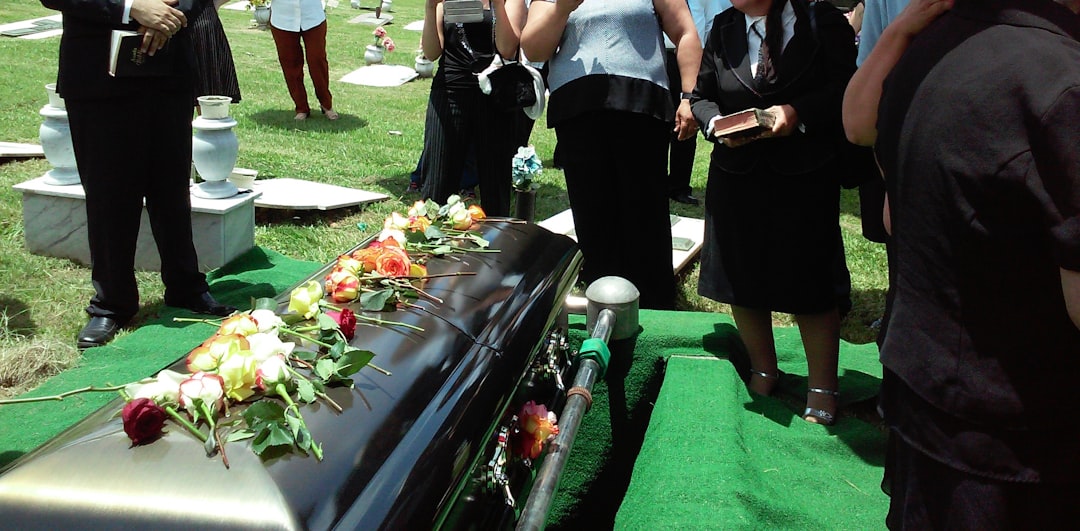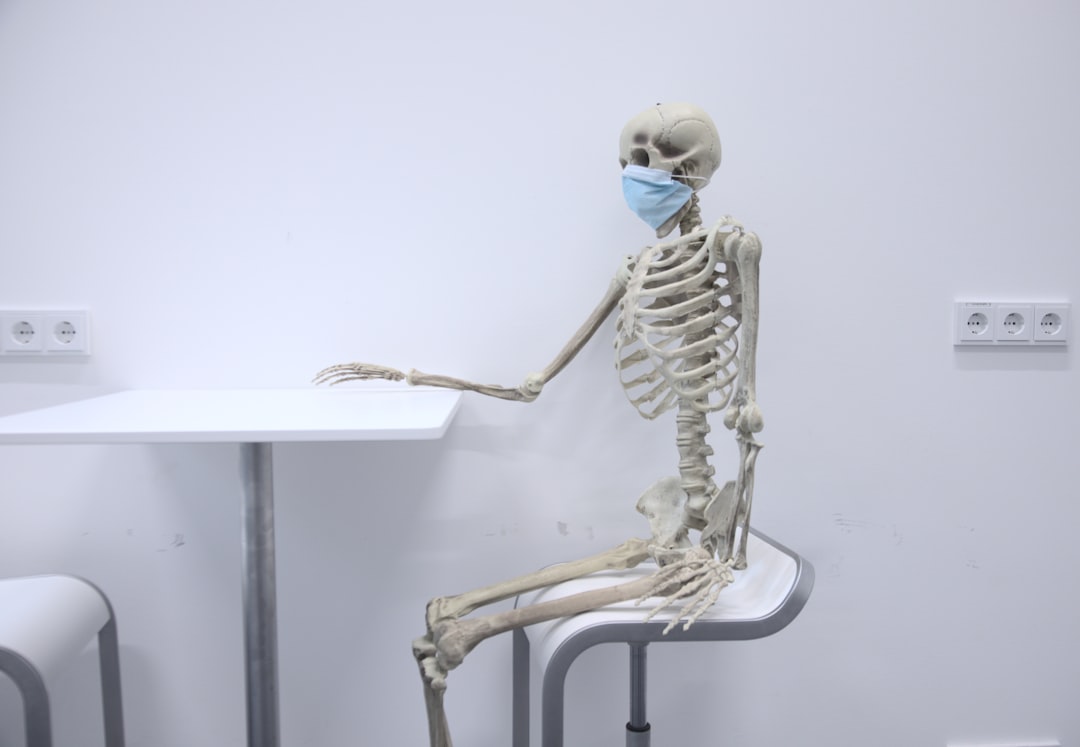

Wrongful death claims arise from a tragic and devastating event-the untimely death of an individual due to the negligence or misconduct of another party. These claims are deeply rooted in tort law, where the primary intent is to seek justice and compensation for the survivors who have suffered emotional and financial loss as a result of the decedent's passing. To fully comprehend wrongful death claims, it's crucial to understand their legal definition and the criteria that must be met for such a claim to be valid.
At its core, wrongful death is defined as a fatality caused by the wrongful act, neglect, or default of another person or entity. This could encompass various situations such as medical malpractice, automobile accidents, workplace incidents, criminal activities, or defective products. The central premise is that had the decedent survived, they would have been entitled to file a personal injury claim against the responsible party.
The criteria for establishing a wrongful death claim generally involve several key components:
Duty of Care: The plaintiff must demonstrate that the defendant owed a duty of care to the deceased individual. Duty of care refers to a legal obligation requiring adherence to a standard of reasonable care while performing any acts that could foreseeably harm others. For instance, drivers owe other road users a duty of care by following traffic laws and driving safely.
Breach of Duty: It must be shown that the defendant breached this duty through action or inaction. This breach can occur through negligent behavior (such as reckless driving), intentional harm (such as assault), or strict liability (as with inherently dangerous activities).
Causation: There needs to be clear evidence linking the defendant's breach of duty directly to the cause of death. This means establishing proximate cause-proving that it was indeed the defendant's actions or lack thereof that led directly to the fatal outcome.
Damages: Finally, there must be quantifiable damages resulting from this wrongful death. Damages may include medical expenses incurred prior to death, funeral costs, loss of income and benefits provided by the deceased, pain and suffering endured by both the victim before their passing and their surviving family members after.
In practical terms, only certain individuals are typically eligible to file wrongful death claims-primarily close family members like spouses, children (including adopted ones), parents, or sometimes more extended relatives depending on jurisdictional statutes.
The compensation sought in these cases serves multiple purposes: it provides financial relief for those left behind who depended on income from their deceased loved one; it covers out-of-pocket expenses related directly to healthcare and burial procedures; it also attempts recompense for non-economic losses such as companionship deprivation and emotional distress faced by survivors.
Navigating through wrongful death claims requires an empathetic yet meticulous approach given its sensitive nature intertwined with complex legalities. Engaging experienced attorneys becomes indispensable-they ensure all necessary elements are thoroughly examined & presented coherently within statutory deadlines imposed under respective state laws governing these lawsuits.
In conclusion,the legal foundation surrounding wrongful deaths offers pathways toward holding accountable entities whose negligent actions precipitate irreplaceable losses whilst simultaneously striving towards delivering some semblanceof solace & stability amidst grieving families' turmoil - ultimately underscoring law's role not merelyin retributive justice but restorative balance too within society at large .
Wrongful death claims arise when a person dies due to the negligence or misconduct of another individual, company, or entity. These claims seek to provide compensation for the survivors' losses, including lost wages from the deceased, lost companionship, and funeral expenses. Understanding common causes of wrongful death is crucial for raising awareness and preventing future tragedies.
One of the most prevalent causes of wrongful death is automobile accidents. Whether due to reckless driving, driving under the influence (DUI), or simple negligence such as distracted driving, these incidents often result in fatalities. Driving while intoxicated impairs reaction times and judgment, leading to catastrophic consequences. Distracted driving, particularly texting while driving, diverts attention from the road and can lead to deadly collisions. Both situations are preventable with responsible behavior and adherence to traffic laws.
Medical malpractice is another significant cause of wrongful death. Errors by healthcare professionals during diagnosis, treatment, or surgery can have fatal outcomes. Misdiagnosis or delayed diagnosis can prevent timely treatment that might have saved a life. Surgical errors, such as operating on the wrong site or leaving instruments inside a patient's body, also contribute to wrongful deaths. The complexities of medical care require utmost precision and diligence; lapses in these areas can be deadly.
Workplace accidents rank high among common causes of wrongful deaths as well. Employees working in hazardous conditions-such as construction sites or factories-face risks from equipment malfunctions, falls from heights, and exposure to harmful substances. Employers have a duty to maintain safe work environments and comply with safety regulations set by agencies like OSHA (Occupational Safety and Health Administration). Negligence in this regard can result in fatal injuries.
Product liability issues also lead to wrongful deaths when consumers use defective products that cause harm. Manufacturers have an obligation to ensure their products are safe for public use; failure in design, manufacturing flaws, or inadequate warnings about potential dangers can make them liable for resultant deaths. For instance, faulty automotive parts like brakes or airbags could lead directly to fatal accidents.
Another area where wrongful deaths frequently occur is criminal acts-homicides driven by malice aforethought clearly fall under this category but so do other violent actions resulting in unintended fatalities. Victims' families may pursue civil lawsuits against perpetrators for compensatory damages alongside any criminal proceedings.
Additionally, premises liability cases highlight how unsafe property conditions can cause fatal injuries. Property owners must ensure their premises are reasonably safe for visitors; neglecting maintenance duties leading to slips-and-falls or structural collapses that cause death could render them liable.
In summary, wrongful death claims stem from various sources including automobile accidents caused by negligent driving behaviors; medical malpractice involving errors by healthcare providers; workplace mishaps due largely to non-compliance with safety standards; defective products failing basic safety assurances; intentional criminal acts causing fatalities; and dangerous property conditions neglected by owners leading directly or indirectly towards someone's demise.
By understanding these common causes-and recognizing patterns within each-we better equip ourselves not only legally but socially too: fostering safer environments through heightened awareness & proactive measures aimed at reducing instances wherein such devastatingly irreversible losses occur again henceforth urging responsible conduct across all facets interacting daily lives altogether thereby safeguarding precious human lives more effectively moving forward collectively thus achieving harmonious existence ultimately envisioned ideally indeed!
Filing a wrongful death claim is an emotionally taxing and legally complex process.. When a loved one dies due to someone else's negligence or intentional actions, the surviving family members may seek justice and compensation through a wrongful death claim.

Posted by on 2024-09-20
Making the Final Decision: What is the Process for Hiring a Wrongful Death Lawyer? Navigating the aftermath of a loved one's death can be emotionally and mentally overwhelming, especially when that death is due to someone else's negligence.. In such a situation, hiring a wrongful death lawyer can be an essential step toward seeking justice and obtaining compensation.

Posted by on 2024-09-20
When discussing the specialized skills and expertise required for personal injury lawyers versus wrongful death lawyers, it is crucial to understand that these two roles, while similar in some respects, demand distinct proficiencies and knowledge bases. A personal injury lawyer primarily focuses on representing clients who have sustained injuries due to accidents or negligence.. The cases they handle can range from car accidents and slip-and-fall incidents to medical malpractice and workplace injuries.

Posted by on 2024-09-20
When it comes to hiring a wrongful death attorney, the stakes are incredibly high.. The emotional and financial burdens that come with such cases make it imperative to choose an attorney who not only has the expertise but also resonates with you on a personal level.

Posted by on 2024-09-20
A wrongful death lawyer is a legal professional who specializes in representing clients who have lost loved ones due to the negligence or misconduct of others.. The role they play in such tragic circumstances goes far beyond mere legal representation; they offer a lifeline to families grappling with both emotional and financial turmoil. When someone dies due to another party’s recklessness, medical malpractice, or intentional harm, the aftermath can be overwhelming for the surviving family members.

Posted by on 2024-09-20
When a loved one passes away due to the wrongful actions of another, the emotional toll can be overwhelming. In addition to the grief and sorrow, there may also be significant financial burdens that accompany such a loss. This is where wrongful death claims come into play, providing a legal avenue for surviving family members to seek compensation for their losses. However, not just anyone can file a wrongful death claim; specific parties are eligible under the law.
The primary parties eligible to file a wrongful death claim are immediate family members. This generally includes spouses, children (both biological and adopted), and parents of unmarried children. These individuals are often considered first in line because they typically suffer the most direct impact from the loss, both emotionally and financially.
Spouses usually have the strongest standing in these cases as they share daily lives with the deceased and often rely on them for financial support. Children also hold significant standing, particularly if they were dependents relying on their parent's income for essentials like education, housing, and general upbringing. Parents of unmarried children can also file claims as they may have been dependent on their child's support or companionship.
Extended family members may also have eligibility under certain conditions. For example, siblings or grandparents who were financially dependent on the deceased might be able to pursue a wrongful death claim. The burden here lies in proving dependency or close relationship ties strong enough to warrant consideration by the court.
In some jurisdictions, domestic partners or those in civil unions are also recognized as eligible parties. As societal norms evolve, so do laws regarding who qualifies as an immediate family member. It's crucial to consult local statutes or legal counsel to understand how these relationships are viewed legally in your area.
In addition to individual family members, representatives of the deceased's estate can file wrongful death claims as well. This is often done when there are no immediate surviving family members or when multiple beneficiaries exist who need representation through a unified legal front. Any compensation awarded would then be distributed according to either the deceased's will or state intestacy laws if no will exists.
While knowing who is eligible to file such claims is important, it's equally vital for potential claimants to act promptly due to statutes of limitations that restrict how long you have after an individual's death to bring forth a lawsuit. Missing this window can result in losing your right to seek compensation altogether.
Understanding which parties are eligible provides clarity during an otherwise tumultuous time and ensures that those most affected by the wrongful death have an opportunity for redress through legal channels. Consulting with specialized attorneys can help navigate this complex landscape effectively while honoring your loved one's memory by seeking justice on their behalf.

Wrongful death claims arise when an individual's life is tragically cut short due to the negligence, recklessness, or intentional actions of another party. In such devastating circumstances, the surviving family members are often left grappling not only with intense emotional pain but also with financial burdens that can be overwhelming. The legal system provides a mechanism through which these families can seek compensation for their losses, known as wrongful death damages. Understanding the types of damages recoverable in wrongful death cases is crucial for those navigating this complex and heart-wrenching process.
First and foremost, economic damages play a significant role in wrongful death claims. These damages are intended to compensate the family for the financial contributions that the deceased would have provided if they had lived. This includes lost wages and benefits, which cover both current earnings and the potential future income that the deceased would have earned over their lifetime. Additionally, economic damages encompass medical expenses incurred due to the injury or illness that led to the decedent's death, as well as funeral and burial costs.
Beyond economic considerations, non-economic damages address the intangible losses experienced by surviving family members. These are often more challenging to quantify but are no less significant. Non-economic damages include loss of companionship, affection, guidance, and emotional support that the deceased would have offered to their loved ones. The bereavement suffered by close family members-such as spouses, children, and parents-is recognized through these compensatory measures.
In some jurisdictions, punitive damages may also be awarded in wrongful death cases. Unlike economic and non-economic damages aimed at compensating survivors for their losses, punitive damages serve a different purpose: they are designed to punish particularly egregious behavior by defendants and deter similar conduct in the future. These types of awards are less common but can be substantial when granted.
The calculation of damages in wrongful death claims often involves intricate assessments conducted by experts who consider various factors such as life expectancy, health status prior to death, earning capacity, and the nature of relationships within the family unit. Legal representation is typically essential for navigating this multifaceted terrain effectively.
It is important to note that state laws vary considerably regarding who is eligible to file a wrongful death claim and what specific types of damages can be pursued. For instance, while some states allow extended family members like siblings or grandparents to seek compensation under certain conditions, others strictly limit eligibility to immediate family members.
In conclusion, wrongful death cases encompass a range of recoverable damages aimed at addressing both tangible financial losses and profound emotional suffering endured by surviving relatives. Economic damages provide critical support by covering lost income and expenses directly associated with the decedent's passing. Non-economic damages acknowledge the deep personal void left behind by their absence. In rare instances where malice or gross negligence is involved, punitive damages may further underscore societal condemnation of such conduct.
For bereaved families seeking justice amidst their grief, understanding these categories of recoverable damages offers a pathway toward achieving some measure of solace and stability during an extraordinarily difficult time.
The statute of limitations for filing a wrongful death claim serves as a critical element in the realm of civil law, dictating the timeframe within which bereaved families must act to seek justice for their lost loved ones. Understanding this legal time limit is essential for ensuring that the rights of survivors are preserved and that their claims are heard in court.
A wrongful death claim arises when an individual loses their life due to the negligent or intentional actions of another party. These claims aim to provide compensation for the surviving family members, covering losses such as funeral expenses, loss of companionship, and financial support. However, regardless of the merits of a case, if a claim is filed outside the designated statute of limitations, it is likely to be dismissed outright.
The length of the statute of limitations can vary significantly depending on jurisdiction and specific circumstances surrounding the death. Generally, most states set this period between one to three years from the date of death. For instance, California has a two-year limitation period for wrongful death claims, while New York allows up to three years. Some states may have exceptions that extend or shorten this window based on factors like discovery rules-wherein the clock starts ticking only when the cause of death is discovered-or cases involving minors or individuals with disabilities.
This time limit underscores an important principle: timely action is crucial in preserving evidence and securing witness testimony. Memories fade over time, documents may get lost or destroyed, and other pertinent details can become harder to ascertain with each passing day. Thus, statutes of limitations encourage prompt investigation and resolution while memories are fresh and evidence remains intact.
Adhering to these deadlines also emphasizes fairness in legal proceedings by protecting potential defendants from perpetual uncertainty. If no constraints existed on when claims could be filed, individuals and organizations might find themselves facing litigation decades after an incident occurred-when defending against allegations would be exceedingly difficult due to faded memories and unavailable witnesses.
Nevertheless, strict adherence to these timelines can sometimes result in perceived injustices where deserving claims go unheard simply because they were filed late. Therefore, understanding one's rights and acting swiftly becomes paramount following a loved one's untimely death.
In practical terms, those who believe they have grounds for a wrongful death claim should consult with an attorney specializing in such cases as soon as possible. Legal professionals can provide invaluable guidance regarding relevant statutes in their jurisdiction and help navigate any complexities or exceptions that might apply.
In summary, while statutes of limitations are designed to bring efficiency and fairness into legal processes surrounding wrongful death claims, they also place significant responsibility on grieving families to act within prescribed periods. Awareness and prompt action are key factors enabling them to seek justice effectively within these legal frameworks.
Pursuing a wrongful death lawsuit is a complex and emotional journey that involves several critical steps, each requiring meticulous attention to detail and an understanding of the legal system. This process is often undertaken by the surviving family members or representatives of the deceased person's estate, seeking justice and compensation for their profound loss.
The first step in pursuing a wrongful death lawsuit is the initial consultation with an attorney who specializes in wrongful death claims. During this consultation, the attorney will gather essential details about the circumstances surrounding the death, assess whether there is a valid claim, and discuss potential legal strategies. This stage is crucial as it sets the foundation for the entire case.
Once it has been determined that there is a viable claim, the next step involves conducting a thorough investigation. The attorney will collect evidence such as medical records, accident reports, eyewitness testimonies, and expert opinions to build a strong case. This phase may also involve visiting the scene of the incident and consulting with specialists who can provide insight into how the death occurred.
After gathering sufficient evidence, the attorney will file a formal complaint or petition with the appropriate court. This document outlines the allegations against the defendant(s) and specifies the damages being sought. It serves as an official notification to all parties involved that legal action is being taken.
Following the filing of the complaint, both sides engage in a discovery process where they exchange information relevant to the case. This stage can include depositions-where witnesses provide sworn testimony under oath-interrogatories-or written questions-and requests for documents. Discovery allows both parties to understand each other's positions and prepare for trial more effectively.
In many cases, before proceeding to trial, there may be attempts at settlement negotiations or mediation where both parties try to reach an agreement without going through prolonged litigation. Settlements can save time and resources but must be carefully considered to ensure they adequately compensate for losses.
If settlement efforts fail or are not pursued, then comes preparing for trial. This involves finalizing arguments, preparing witnesses, creating exhibits for presentation in court, and developing a comprehensive strategy that addresses all aspects of proving liability and damages.
Finally, if no resolution has been achieved through previous stages, the case goes to trial where both sides present their arguments before a judge or jury. The plaintiff's attorney will need to convincingly demonstrate how negligence or misconduct led directly to wrongful death while also substantiating claims for financial compensation covering medical expenses prior to death (if applicable), funeral costs, loss of income support from deceased family member(s), loss companionship among others depending on jurisdiction laws.
Throughout this entire process-from initial consultation through possible appeals-the emotional toll cannot be understated; grieving families must navigate intricate legal systems while coping with their profound personal loss making compassionate yet professional legal guidance indispensable during these challenging times.
The Importance of Legal Representation in Wrongful Death Cases
Losing a loved one is always a devastating experience, but when the death occurs due to someone else's negligence or intentional harm, the pain can be compounded by feelings of anger and injustice. In such circumstances, wrongful death claims offer a pathway for families to seek justice and compensation for their loss. However, navigating the complexities of these cases requires more than just determination and emotional resilience-it demands skilled legal representation.
Wrongful death claims are inherently intricate, involving various legal nuances that can be overwhelming for individuals who are already grappling with grief. An experienced attorney specializing in wrongful death cases brings invaluable expertise to the table. They understand the specific statutes that govern these claims, which can vary significantly from one jurisdiction to another. This knowledge is crucial for ensuring that all procedural requirements are met and that the case is filed within the appropriate statute of limitations-a critical factor that can make or break a claim.
Moreover, legal representation provides essential support in gathering and presenting evidence. Establishing liability in a wrongful death case often requires comprehensive investigations, expert testimonies, and meticulous documentation. A seasoned lawyer has the resources and connections to conduct thorough investigations, collaborate with medical experts, accident reconstruction specialists, and other professionals whose insights can substantiate the claim.
In addition to building a robust case, attorneys play a pivotal role in negotiating settlements. Insurance companies and opposing parties typically aim to minimize payouts; they possess significant experience and aggressive strategies for achieving this goal. Without legal representation, grieving families might find themselves at a disadvantage during negotiations. A skilled lawyer advocates on behalf of their clients' best interests, striving to secure fair compensation that covers not only immediate expenses like funeral costs but also long-term financial needs such as lost income and emotional suffering.
The courtroom itself poses another set of challenges where having an attorney is indispensable. Litigation involves complex procedural rules and formalities that must be adhered to rigorously. An experienced trial lawyer knows how to effectively present arguments, cross-examine witnesses, and counter defense strategies-all while maintaining composure under pressure.
Beyond technical expertise, legal representation offers emotional relief during an incredibly trying time. Families dealing with wrongful death are already overwhelmed by their grief; adding the burden of managing legal proceedings can exacerbate their distress. Having a dedicated attorney allows them to focus on healing while trusting that their case is being handled competently.
Finally, wrongful death cases often carry broader implications beyond individual compensation-they hold accountable those responsible for negligence or harmful actions. Successful claims can lead to changes in policies or practices that prevent future tragedies from occurring. By securing justice through proper legal channels, families contribute to societal accountability and safety improvements.
In summary, while no amount of money or legal victory can fully heal the heartache of losing a loved one due to wrongful death, competent legal representation ensures that families have the best possible chance at obtaining justice and financial relief. It provides essential expertise in navigating complex laws, gathering evidence, negotiating settlements, managing courtroom procedures-and perhaps most importantly-offering compassionate support during one of life's most challenging moments.